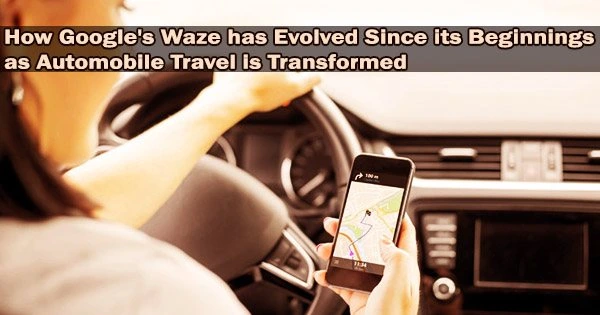Nobody likes being stuck in a line of traffic, having their arrival time delayed by road work, and watching their level of road rage increase minute by minute. The crowdsourcing navigation program Waze is constantly coming up with new solutions to lessen the annoyance of annoying road imperfections.
During their journeys, Waze users, commonly known as “Wazers,” report on topics like stopped automobiles, road work, gas pricing, and police activity. After gathering this real-time information, the app updates its maps to provide users with the most recent information on travel times and other potential traffic snarls. More than 140 million people use this modest Israeli firm on a monthly basis.
In 2013 shortly after the app made the inaugural CNBC Disruptor 50 list Alphabet’s Google acquired Waze, reportedly for more than $1 billion. The addition of Waze to the Google portfolio was expected to help Google improve features on its own navigation app, Google Maps.
The most widely used navigation software today, Google Maps, makes greater use of past data to determine the best route to a location. Waze, on the other hand, only works with cars and motorcycles and uses a special sort of crowdsourcing to find the quickest route using the most recent data.
The app’s invention has in the past drawn criticism for perhaps distracting drivers who must use their phones while operating a vehicle to submit complaints to Waze.
Los Angeles city council members threatened legal action against it in 2018 for recommending shortcuts that ended up causing more congestion on side roads that weren’t designed to handle heavy traffic. Uri Levine, co-founder and former Waze president, said at the time that he disagreed with the complaints.
Why should anybody feel emotional about a navigation app? It’s not just a one-way app that uses technology. It is a two-way ecosystem where people actually contribute to help each other.
Neha Parikh
“All roads are the public domain and therefore the right of everyone to use,” Levine said. “In that sense, Waze redistributes traffic to create a better traffic situation for everyone.”
The company also struggled at the beginning of the Covid-19 pandemic. Waze stated in April 2020 that its users worldwide were driving 60% less miles compared to two months prior, with driving in Italy one of the first nations to witness the effects of Covid-19 plummet by 90%. This was due to a decrease in the number of people traveling. As a result, Waze laid off 5% of its global workforce in September 2020 and permanently closed offices in the Asia-Pacific and Latin America regions.
The company also shutdown Waze Carpool in September, a service connecting Wazers with similar commutes to carpool. The six-year-old program was designed to save gas expenses for Wazers while easing traffic during peak travel times each day, but the pandemic created too many changes in work driving patterns for it to be a priority. Nowadays, errand runs and travel are the main reasons people use Waze.
Despite these challenges, innovations within the app have kept Waze users consistently coming back to the platform. It’s one of the top navigation choices among Uber and Lyft drivers.
Drivers using Waze can be entertained as they’re directed to their desired location through voices from celebrities like DJ Khaled, Arnold Schwarzenegger and T-Pain. Partnerships with popular music streaming services such as Spotify, Pandora and iHeartRadio allow Waze users to stream music directly through the Waze app as they navigate to their destination.
Waze also flaunts its ability to do more for the greater good. The app was used by FEMA during Hurricane Sandy to provide information on available fuel locations in the midst of gas shortages; it helped provide accurate information on Covid-19 testing centers at the beginning of the pandemic.
The Waze for Cities program, which enables two-way data sharing between the app and government partners to assist communities with city planning and Waze with more precise traffic monitoring, also enables local governments to collaborate with Waze.
New top officials have joined the company relatively recently, with Neha Parikh taking on the role of CEO in June 2021 and CMO Harris Beber joining in April 2022. Beber previously served as CEO at Vimeo, while Parikh was the president of Expedia-owned Hotwire and currently sits on the board of Carvana.
“Why should anybody feel emotional about a navigation app? Yet people do, including me,” Parikh said at the Skift Global Forum in October. “It’s not just a one-way app that uses technology. It is a two-way ecosystem where people actually contribute to help each other.”
















